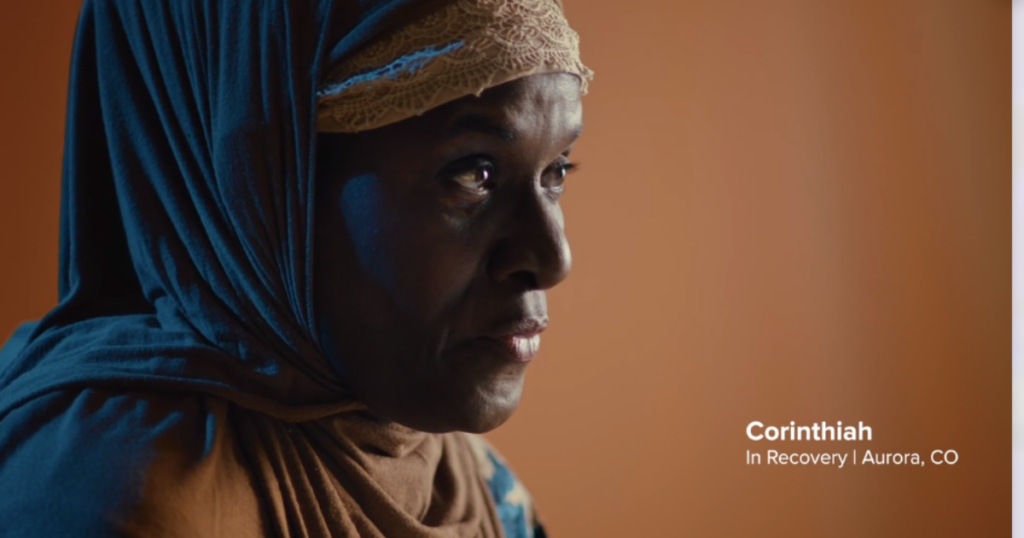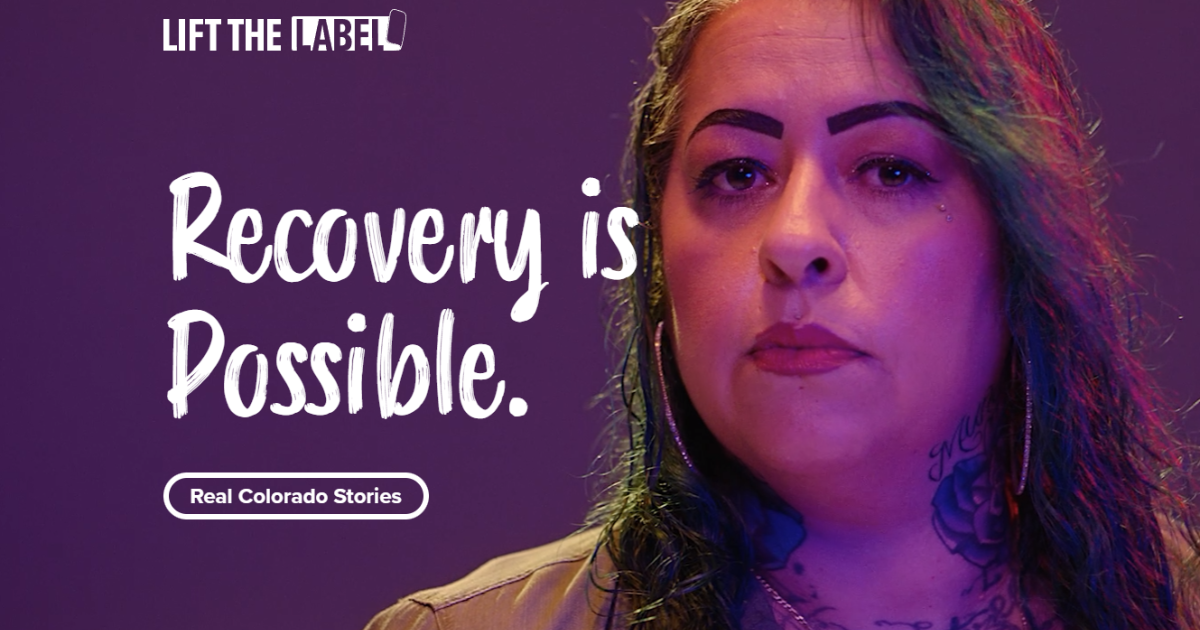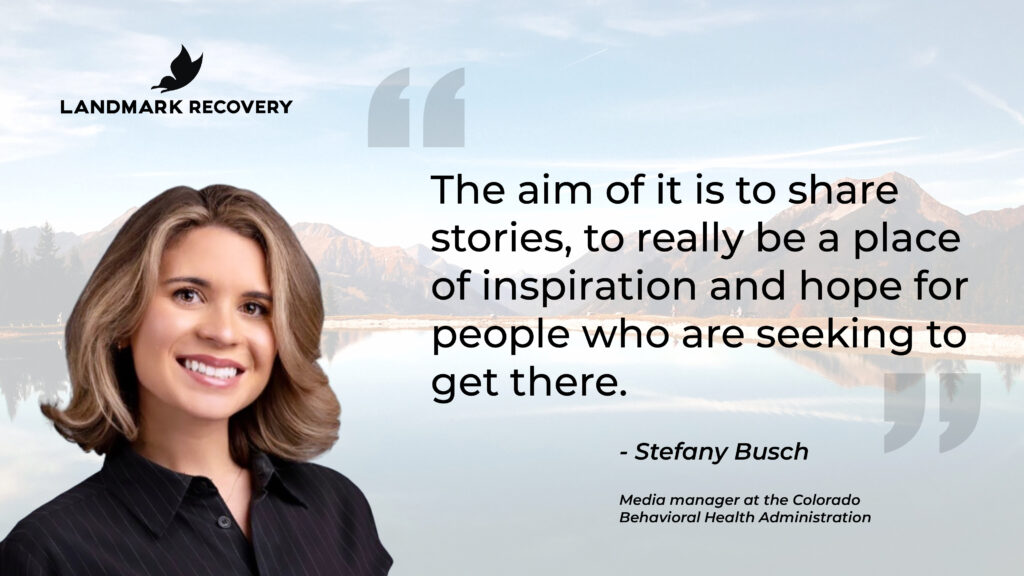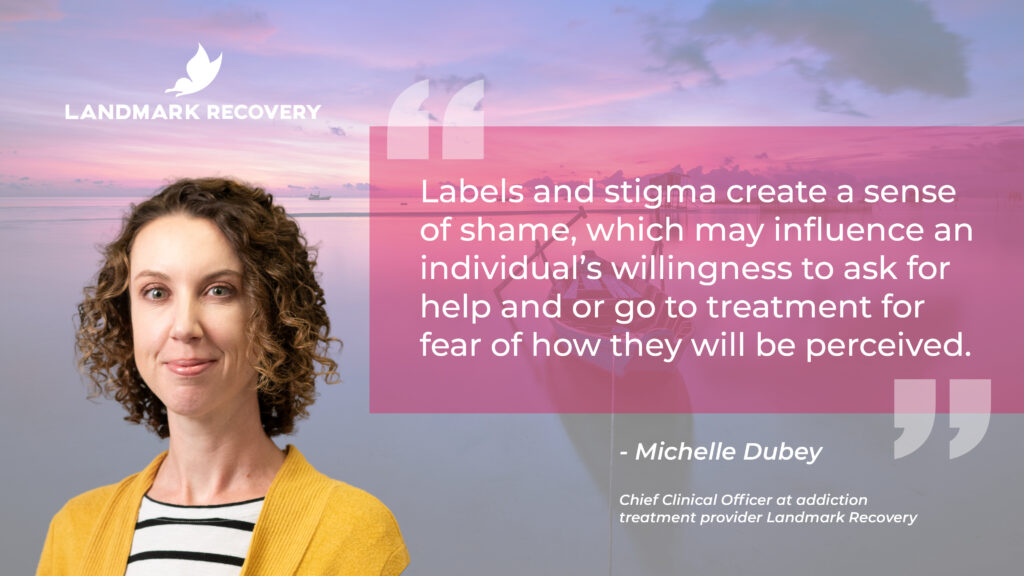The Colorado Behavioral Health Administration has a message for anyone struggling with addiction: recovery is possible and available to you.
“Lift the Label” Campaign in Colorado Seeks to End the Stigma of Addiction
Colorado adopted the “Lift the Label” campaign to reduce the stigma of addiction, which often stops people from seeking treatment for substance use disorder (SUD). The main goal of the campaign is to share recovery stories and resources that help people conquer addiction and find long-term recovery.
“The aim of it is to share stories, to really be a place of inspiration and hope for people who are seeking to get there,” said Stefany Busch, a media manager at the Colorado Behavioral Health Administration during an interview with Fox31 Denver.
What is Colorado’s “Lift the Label” campaign?

Lift The Label features recovery stories of several Coloradans like Corinthiah on its website. (Photo by Lift the Label)
“Lift the Label” is a public awareness campaign that strives to remove damaging labels and the stigma of addiction. The campaign, run by the Colorado Behavioral Health Administration, is out to break barriers that often prevent people from seeking professional addiction treatment. Those barriers include common, societal beliefs that addiction is a “choice,” a “moral failing” or a “lack of willpower.”
“Labels and stigma create a sense of shame, which may influence an individual’s willingness to ask for help and or go to treatment for fear of how they will be perceived,” wrote Michelle Dubey, chief clinical officer at addiction treatment provider Landmark Recovery.
The campaign is funded through a grant from the Substance Abuse and Mental Health Services Administration (SAMHSA).
Related: Choosing an appropriate language to reduce addiction stigma
What is the stigma of addiction?
The stigma of addiction is the unfounded belief that people suffer from substance use because they lack willpower or have a character flaw. Addiction stigma includes a collection of labels and negative stereotypes among groups of people who believe that substance use problems are caused by:
- Poor choices
- Moral failings
- Lack of willpower
- Inherited traits
@landmarkrecovery #duet with @notryanprimer #MentalHealth WE LOVE THIS!! Say it louder for the people in the back! #mentalhealthcheckup #breakthestigmas #showcompassion #protectyourmental #listenuptiktok
To reduce the stigma of addiction, Lift the Label’s website features addiction recovery resources to help people struggling with the disease. Those resources include:
Related: Stigma of Addiction Survey Reflects Attitude Shift
Real Colorado addiction recovery stories
One of the major goals of the Lift the Label campaign is to help Coloradans and the public understand that addiction doesn’t discriminate. Any person can develop a substance use disorder, regardless of age, race, gender identity or income level. To illustrate the idea, Lift the Label released the stories of several Coloradans impacted by addiction.
Click here to learn about those recovery stories.
How to reduce the stigma of addiction
Lift the Label highlights four steps to reduce stigma and support someone in recovery, including:
- Use person-first language to humanize people living with substance use disorder. Labels like “addict,” “alcoholic,” or “crackhead,” are damaging to recovery efforts. They can create shame and cause people to skip professional treatment out of fear of judgment. Instead of saying “addict,” say “person with a substance use disorder.”
- Learn about substance use disorder (SUD) and treatment options. There are many options to consider, including Landmark Recovery of Denver, one of the newest alcohol and drug addiction treatment centers.
- Be an ally. Overcoming addiction is difficult on its own. Be there to support your loved one’s recovery with love and encouragement, not judgment.
- Remember that SUDs are treatable and recovery is possible. Research shows that addiction treatment does work. Rehab is an investment that, for those who commit to their long-term recovery, can help people restore their health and lead productive lives.
Related: How to support a friend in recovery
Know someone who needs addiction recovery support?
Call 720-702-9994 for more information on addiction treatment in Colorado. The professionals at Landmark Recovery of Denver would love to connect you with helpful resources. Located in nearby Aurora, we’re one of the newest drug and alcohol addiction treatment centers in Colorado. If you or someone you know is ready to achieve long-term recovery, don’t let negative labels stop you from getting help.
Our dedicated admissions team is available 24/7 on a confidential phone line to answer questions and guide you on your personal recovery journey.

Choose Recovery Over Addiction
We're here 24/7 to help you get the care you need to live life on your terms, without drugs or alcohol. Talk to our recovery specialists today and learn about our integrated treatment programs.






